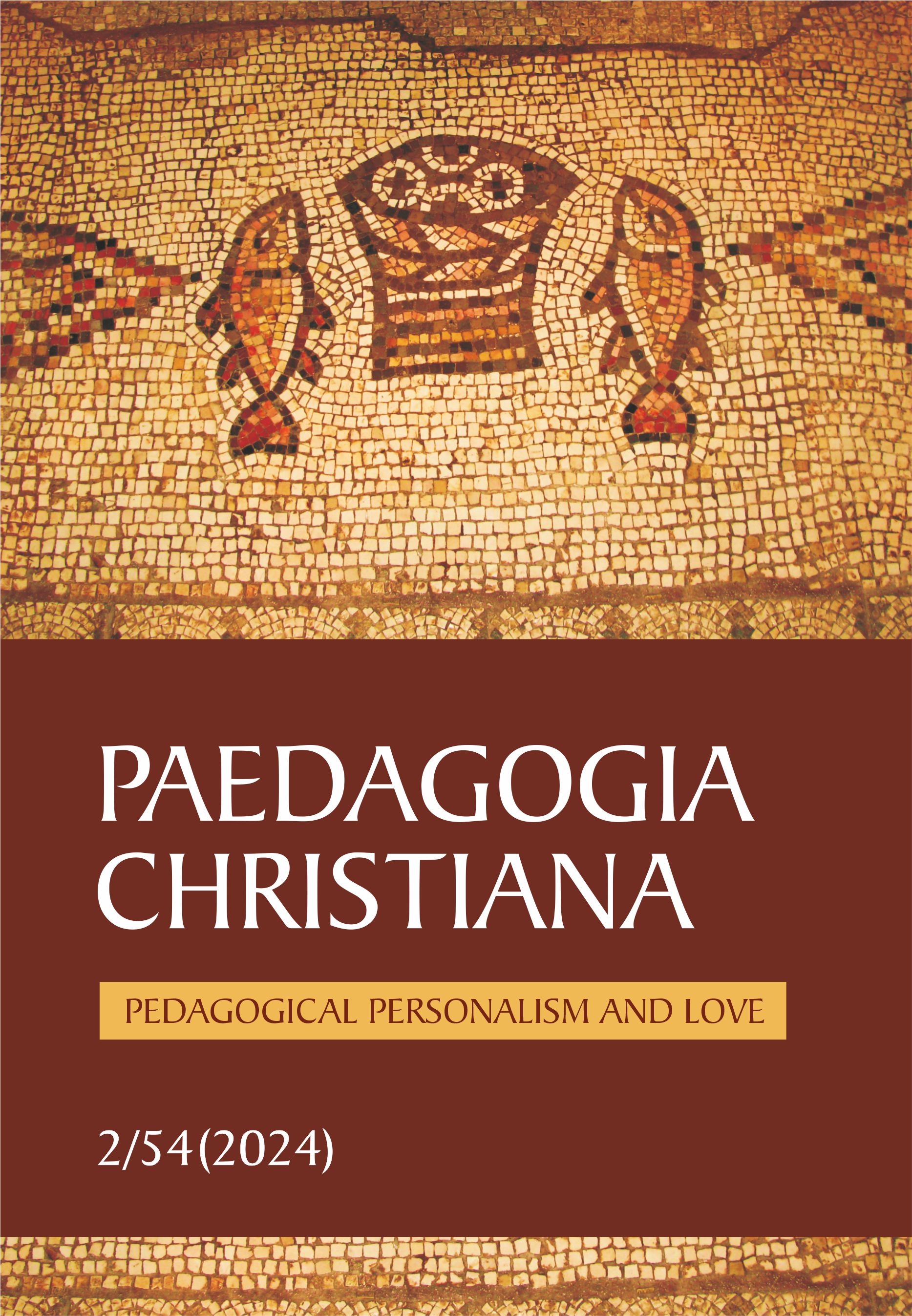Domownik Workbook. A Resource for Shaping Children’s Cultural Identity in Grades I–III
DOI:
https://doi.org/10.12775/PCh.2024.024Keywords
early childhood education, ethnos, school catechesis, culture, cultural identityAbstract
The cultural identity of an individual – a child – a pupil and its formation is a crucial matter in times of globalisation, cultural fusion, interaction with others, and merging into intercultural, transcultural structures. In a school setting, the children can have new, broader experiences constituting belonging to a given cultural community. In the first three grades of primary school, this is done through early childhood education and (importantly) through school religious education in the form of catechesis and the tools and textbooks used during it. It combines the cultural identity conferred in the family with the identity naturally conveyed through religion. This paper presents a qualitative analysis of the secondary source in the form of the workbook Domownik – a supplement for the family, which accompanies the school catechesis textbooks of the Catholic Church in the first educational stage. It was concluded that the workbook includes features leading to ethnos, which is recognised as a determinant for cultural identity formation. These features guide the pupil towards the knowledge and education of language (linguistic codes), customs (communal celebrations), history (collective memory) and being rooted in religion. They also mobilise them to explore the values and principles characteristic of the Catholic Church community in Poland and to open up to the experiences that make up the structure of an individual’s identity embedded in the reality of affiliation and identification with a particular social community. Domownik is a tool for working with the pupil through collaboration with his/her most immediate cultural group – the family. It is designed to be used
as an optional extra task for children in grades I–III in their home environment. In school, on the other hand, it is sometimes used alongside – on a par with – instead of the textbook.
References
The Act of 14 December 2016 – Education Law (Journal of Laws of 2016, item 59).
The Act of 14 December 2016 – Regulations introducing the Act – Education Law (Journal of Laws of 2016, item 60).
Bauman, Z. (1994). Dwa szkice o moralności ponowoczesnej. Warszawa: Instytut Kultury.
Boski, P. (1992). O byciu Polakiem w ojczyźnie i o zmianach tożsamości kulturowo-narodowejna obczyźnie. In P. Boski, M. Jarymowicz & H. Malewska-Peyre (Eds.), Tożsamość a odmienność kulturowa (pp. 71–211). Warszawa: Instytut Psychologii PAN.
Gadamer, H. G. (2004). Prawda i metoda. Warszawa: Wydawnictwo Naukowe PWN.
Jeszka, A. (2022). Tożsamość religijna. In Słownik wolności religijnej. Retriever May 9th, 2024 from: https://laboratoriumwolnosci.pl/slownik/tozsamosc-religijna/.
Kto spożywa moje Ciało ma życie. (2022). Warszawa–Olsztyn: Wydawnictwo Archidiecezji Warmińskiej.
Mead, G. H. (1975). Umysł, osobowość i społeczeństwo. Warszawa: Wydawnictwo Naukowe PWN.
Mielicka, H. (2006). Antropologia świąt i świętowania. Kielce: Wydawnictwo Akademii Świętokrzyskiej.
Mielicka-Pawłowska, H. (2018). Ethnos jako podstawa tożsamości kulturowej. Humanistyka i Przyrodoznawstwo, 24, 193–209. https://doi.org/10.31648/hip.2604.
Nikitorowicz, J. (2014). Kosmopolityzm w kontekście wielowymiarowej tożsamości człowieka pogranicza. In A. Kisielewska (Ed.), Na stykach kultur i mediów. Między prowincjonalizmem a kosmopolityzmem (pp. 33–51). Białystok: Wydawnictwo Uniwersytetu w Białymstoku.
Nikitorowicz, J. (2015). Model kształtowania się tożsamości kulturowej w warunkach wielokulturowości. Psychologia Wychowawcza, 7, 125–134. https://doi.org/10.5604/00332860.1161590
Podstawa programowa katechezy Kościoła katolickiego w Polsce. (2018). Częstochowa: Konferencja Episkopatu Polski.
Regulation of the Minister of Education of 22 March 2024 amending the Regulation on the assessment, classification and promotion of pupils and students at public schools.
Rubacha, K. (2016). Metodologia badań nad edukacją. Warszawa: Editions Spotkania.
To jest mój Syn umiłowany. (2021). Warszawa–Olsztyn: Wydawnictwo Archidiecezji Warmińskiej.
Turner, V. W. (2004). Liminalność i communitas. In M. Kempny & E. Nowicka (Eds.), Badanie kultury. Elementy teorii antropologicznej. Kontynuacje (pp. 240–266). Warszawa: Wydawnictwo Naukowe PWN.
Veresov, N. (2009). Rozwój kulturowy rozumiany w kategoriach dramatu. Brakujące ogniwo czy ukryte przesłanie L. S. Wygotskiego? Teraźniejszość – Człowiek – Edukacja, 45(1), 47–54.
Vygotsky, L. S. (1978). Mind in society: the development of higher psychological processes. Cambridge: Harvard University Press.
Whorf, B. L. (1982), Język, myśl i rzeczywistość. Warszawa: PIW.
W imię Ojca i Syna, i Ducha Świętego. (2020). Warszawa–Olsztyn: Wydawnictwo Archidiecezji Warmińskiej
Downloads
Published
How to Cite
Issue
Section
License

This work is licensed under a Creative Commons Attribution-NoDerivatives 4.0 International License.
Stats
Number of views and downloads: 219
Number of citations: 0



